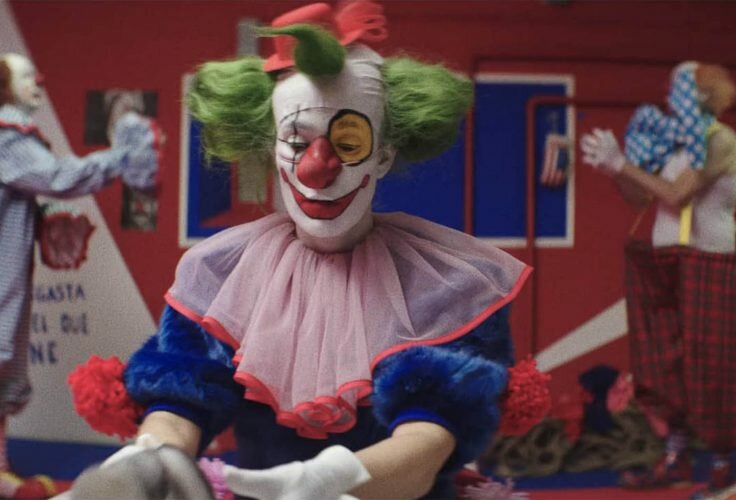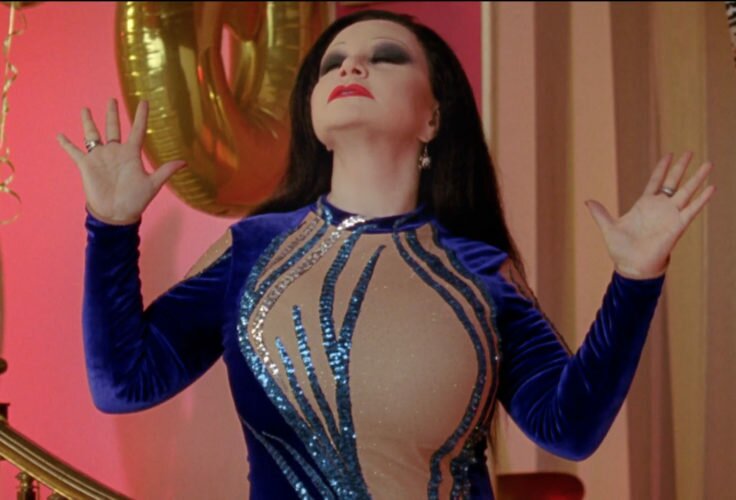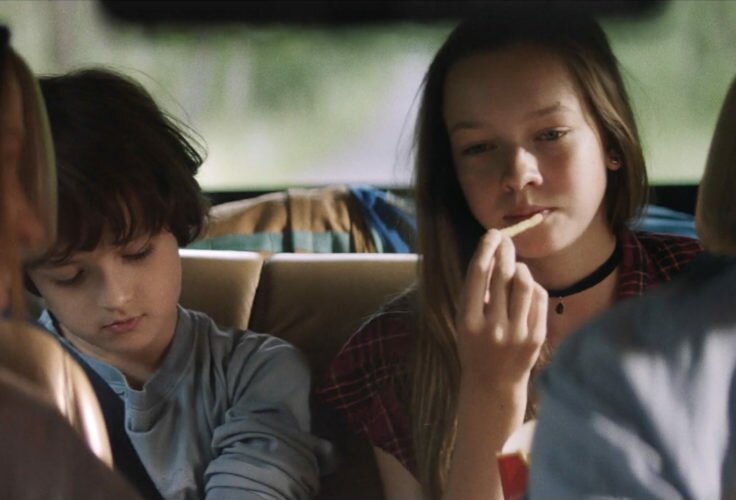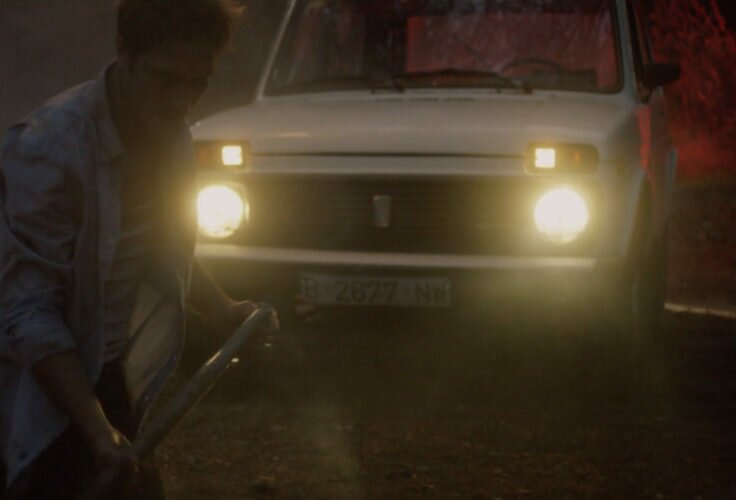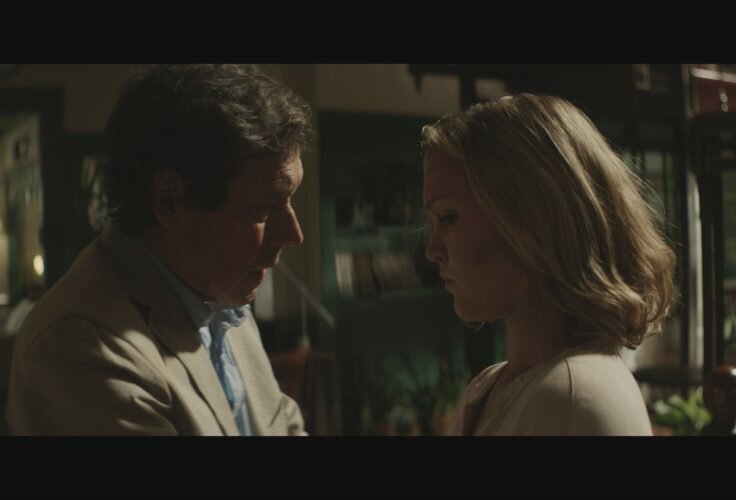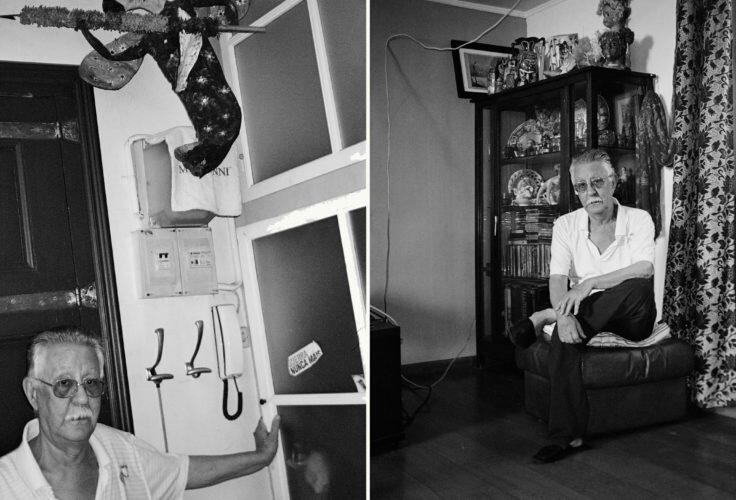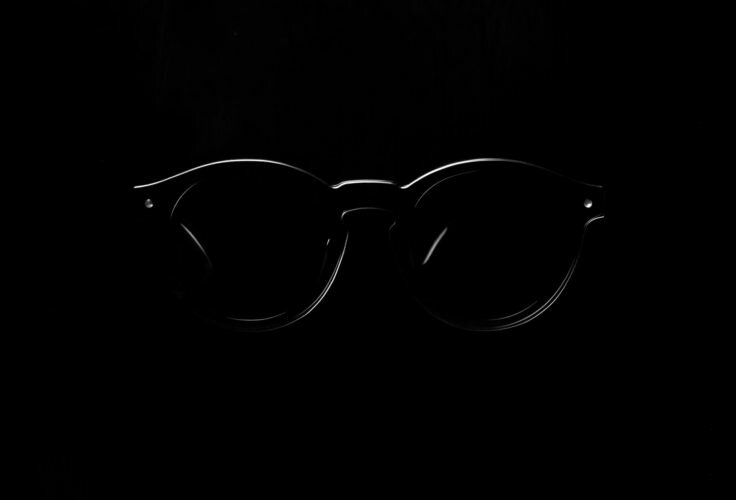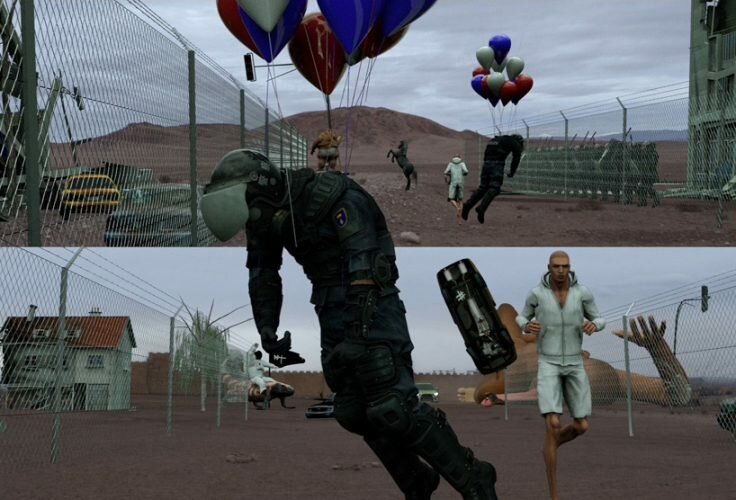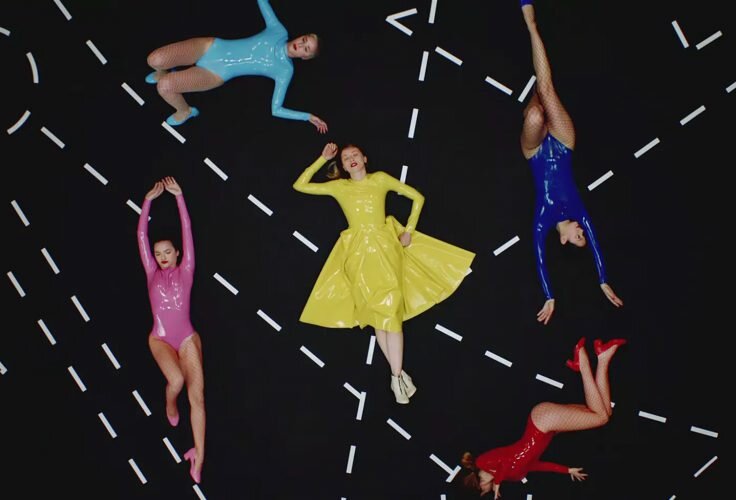Teaser posters are, by far, much more suggesting and creative than official film posters. Violeta Kovacsics explains why.
SONGS AS GAGS
by VIOLETA KOVACSICS
Heads Up! Heads Up! Here’s another one
Forrest Gump’s Vietnam has little to do with Tugg Speedman’s, the actor fallen on hard times immersed in a guerrilla shooting in the midst of a jungle in Tropic Thunder. In fact, Speedman is in a tricky moment of his career because he has just played a mentally impaired guy in Simple Jack, a role for which, according to his colleague and rival Kirk Lazarus, he never had any options to win the Oscar because, unlike Tom Hanks in Forrest Gump, . In any case, Forrest’s and Tugg’s Vietnam have something in common: in both of them we can hear Buffalo Springfield’s For What It’s Worth, a sixties hymn that in Ben Stiller’s hands acquires a much more ironic air than in Robert Zemeckis’. For Tugg’s spiritual voyage (and his way to the Oscar), Stiller takes the mysticism of Apocalypse Now and turns it into a comedy. Thus, while the Buffalo Springfield song is on, Speedman the dimwit tells a Vietnamese child, with overacted sensitivity, that he can call him “dad”.
The scenes taking place during the Buffalo Springfield score are not the only ones in Tropic Thunder serving the purpose of setting an ironic distance between the music we hear and what we see. The best part goes to Les Grossman, described by The New York Times critic Manohla Dargis as “the producer of the movie-within-a-movie, who’s played by an almost unrecognizable Tom Cruise under a thick scum of makeup and latex. Heavily and heavy-handedly coded as Jewish, the character is murderous, repellent and fascinating, a grotesque from his swollen fingers to the heavy gold dollar sign nestled on his yeti-furred chest”. This dollar that the greedy and aggressive tycoon has round his neck reveals both his taste for money and his obsession for hip-hop. In fact, Tropic Thunder ends with Grossman , in the same way that he did a bit earlier but with and under the bootlicking gaze of his assistant (Bill Hader). Without a doubt, the songs are not funny by themselves, but Cruise’s overdone movements certainly are.

Like Jerry Lewis, Ben Stiller has always been good at interpreting and directing dimwit heroes. Tugg Speedman isn’t exactly the most brilliant man on earth, but he’s probably smarter than Derek Zoolander, the dethroned (like Speedman) model that needs to re-conquer his place; the same that of the “Centre for kids who can’t read properly” because he thinks it’s the real building and, obviously, kids won’t ever learn to read there because they will never be able to enter such a tiny construction. The same, however, who realises that bathing in gasoline and lighting a cigarette at the same time . This is what Derek’s friends do when they decide to cheer him up after a defeat. Thus, while Wham! are playing on the background, Zoolander’s friends prove they’re even dumber than him. The music adds a last touch of irony to a scene that goes from ridicule to parody and, finally, to hilarious tragedy.

I could stay lost in this moment forever

Maybe romanticism is all about this, saving the planet from the impact of a meteorite while you hear on the background. However, it seems more interesting to give Aerosmith’s song another use and put this cheesy ballad to the service of a parody of ice-skating and of the concept of the (artistic) couple in general. In Blades of Glory, Will Ferrell and Jon Heder play two skating stars who are forced to collaborate, and they do a dance in which while Heder smiles, Ferrell grimaces. The harmony between them both goes from rivalry, via Aerosmith’s music, to sensuality turned into something quite coarse. “En sincronia i a mȧxima velocitat, te vas a l’aire amb una força increïble i, a punt de caure, t’agaf” [Sinchronised and at full speed, you go up in the air with amazing strength and, just when you’re about to fall, I catch you], . There’s something of this in Blades of glory, when the delicate character played by Heder jumps for Ferrell to grab him from the balls and lift him… “només amb una mà” [with one hand only].
Ferrell is an expert in turning any music theme into a parody (SNL is a great school of misrepresentation of the real meaning of songs with comical purposes: ask masters Christopher Guest and ). A Night at the Roxbury starts without a dialogue, with and the two main characters ridiculously dancing and flirting. However, the best musical Ferrell moment goes to good old Ron Burgundy, the dumb news presenter who shows . Even if it can’t be grasped the first time round, here’s also a background song that has conveniently been altered in the benefit of the scene’s comical potential. Jethro Tull’s Aqualung is one of the solo flutes that virtuoso Ron interprets for his bewildered audience.


Jerry Lewis also played the flute. Or, rather, he didn’t play it, but . The scene belongs to Cinderfella, directed by Lewis’ fetish director, Frank Tashlin. However, Lewis himself took a Count Basie score from another scene in which jazz becomes all of a sudden a comical target thanks to the actor’s gestures. Lewis was a master at showing the displacement between sound and image. In The Errand Boy, music is a soundtrack for , in which the errand boy played by Lewis becomes, for a moment, a boss giving orders to his imaginary subjects in an also imaginary meeting.

But let’s get back to Ferrell. When Burgundy finally manages to with the woman he likes (after having impressed her with his jazzy flute number), eroticism and sexuality are represented on the screen by cartoons, with the protagonists riding unicorns over the rainbow. Comicalness becomes thus almost delirious and impregnates the song we hear on the background, Tom Jones’ Help Yourself (remember that Tom Jones is ‘ favourite musician). The use of the song reminds us of the one that, in The 40-Year-Old Virgin, Judd Apatow gave to Aquarius (Let the Sunshine In), the soundtrack the virgin of the title imagines when he finally manages to lose his virginity: nothing better to illustrate the satisfaction of the moment than a musical number with bare-chested .

It’s so hard to keep this smile from my face
Is all about a girl who digs a guy with a big dick. The whole song is a metaphor for big dicks,” says one. “No, it’s not. It’s about a girl who’s very vulnerable girl who meets some guy who’s really sensitive,” says another. This is the opening scene from Quentin Tarantino’s Reservoir Dogs, with a bunch of big men sporting black and white suits discussing the meaning of a Madonna song. In Tarantino’s films, music is everywhere, even in the most unexpected situations, like a train crash between the musical and the visual. “Directing is actually like making a mix tape of music,” Tarantino declared in an interview with The New York Times in the mid nineties, “because you’re taking all these people’s talents and adding an aesthetic of your own, depending on what you’ve selected and how you arrange what you’ve selected.”

This is what the director does in one of people’s favourite Reservoir Dogs scenes. Although the hardest moment is off-screen, the dancing is perfectly visible on the screen. Michael Madsen, the man with a look between smiling face guy and thug, does some dance steps to while he tortures a policeman he has gagged and tied to a chair. With all the calmness in the world, as if it were a purely routinely gesture, the man cuts his victim’s ear.
This mixture between the violence we are witnessing and a soundtrack that seems to be going in a completely different direction is also present in the main scene of David Fincher’s Millennium I: The Girl With the Dragon Tattoo, when the murderer , and he records it all on videotape. However, the most radical and subversive combination of violence and (pop) music can be found in Acción mutante, when a posh party is interrupted by the terrorist group that gives the film its name and the voice of singer Karina can be heard, intermingled with the screams and the sound of a machine gun. Here, more so than in Millennium and Reservoir Dogs, what we can perceive is irony and, above all, criticism.
And when I’m sad,
you’re a clown

I wouldn’t dare say that I Got You Babe is a serious song that becomes comical in the hands of Harold Ramis. For the spectator, the moment becomes certainly funny, but for the main character is something similar to a calvary. No one better than Bill Murray to interpret Phil, the man who, in Groundhog Day, discovers that every day is the same, that he has to live the same situations, .
The comicalness that is given to music doesn’t depend so much on the situation or the scene as on repetition. With each new day, the song becomes funnier and funnier, and probably more exasperating for the protagonist. The same thing must cross the mind of Adventureland‘s main character about Falco’s . “Jesus Fucking Christ! They play this song like twenty times a day!” says the guy played by Jesse Eisenberg. “Fucking sadists. Fucking sadists!” a friend answers back. This might be the worst song in the film’s extensive soundtrack, but also the one that best defines it, since it is repeated again and again as the amusement park’s background music, the micro-world inhabited by the characters.
Oh my God,
we’re back again

In a film in which James Franco plays James Franco, and Michael Cera is reprimanded by Rihanna, it isn’t strange for its climax to have the Backstreet Boys as starring guests. Among other things, because Franco, director Seth Rogen, Jonah Hill and Jay Baruchel, some of the protagonists of This is the End, were born between the end of the seventies and the beginning of the eighties, and probably lived the band’s boom in the mid and final years of the nineties. Thus, when they go to heaven and discover they can ask a wish, Baruchel has no other idea than to ask for , that post-teenager band now turned thirty- or even forty-something. In heaven, with halos over their heads, Nick Carter, Howie D., Brian, A. J. and Kevin make the verse that was danced to shaking arms and waist come true: “oh my god, we’re back again”. The parodic tone is added by Rogen’s dances and Baruchel’s attempts to sing the song, the same thing that the protagonists do in Bridesmaids. At the end of the film, Kristen Wiig and Maya Rudolph funnily emulate the gestures of a fan before her favourite teenage band. In fact, these two actresses can turn into a comedy.
The best song ever turned into parody is also by a boy band that enjoyed great success in the nineties. Its lyrics, however, are conveniently modified, and instead of singing “I swear” what is heard is “Underwear”. On the sequel to Despicable Me, the minions are the stars of this parody of parodies, the height of silliness turned comicalness. Dressed in white and shaking their little arms like doves over grass, they sing in their incomprehensible language the song that made All-4-One famous, in .
